
There’s something uniquely powerful about the movies we love. They have this incredible ability to transport us, to make us laugh, cheer, and sometimes, to absolutely break our hearts. When a character we’ve grown to adore, or even just gotten to know, meets their end on screen, it can feel like a punch to the gut that lingers long after the credits roll.
Indeed, some deaths in cinema are designed to be shocking, violent, or even darkly comedic, serving various narrative purposes. But then there are those that stick with you, the ones that are so utterly devastating they become etched into your memory. They create “a lifelong inability to shed that initial devastating impact,” becoming moments you almost dread revisiting, even as they define the films they’re in.
So, prepare yourselves, because we’re about to take a deep dive into some of the most emotionally resonant and undeniably saddest movie deaths ever put on film. These are the moments that truly tested our tear ducts, leaving us reaching for the tissues and questioning why filmmakers felt the need to wound us so deeply. Apologies for any “residual trauma that’s about to be dredged back up and shoved to the forefront,” but these are the ones that demand recognition.
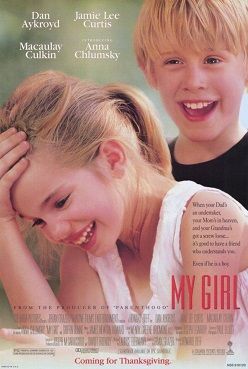
1. **Thomas J. Sennett (My Girl, Howard Zieff, 1991)**This coming-of-age story was ostensibly “marketed as a children’s film,” which made the emotional gut-punch it delivered all the more unexpected and profound. Imagine going into a movie expecting lighthearted innocence, only to be confronted with a moment that would scar a generation. The film’s massive success, earning “a mammoth $121 million at the global box office,” only amplified the reach of its devastating impact, ensuring countless viewers shared in the collective heartbreak.
The tragedy revolved around Macaulay Culkin’s character, Thomas J. Sennett. He was, at the time, “the world’s favourite child star,” which made his fate all the more difficult to stomach. Thomas J.’s severe allergy to bees became the horrifying instrument of his demise, leading to a pained “oh no” before “he was overcome by a swarm while searching for the lost mood ring of Anna Chlumsky’s Vada Sultenfuss.”
The scene is etched into our collective consciousness, particularly the agonizing slow-motion shot of “his glasses plummeting to the ground.” This visual, combined with Anna Chlumsky’s absolutely raw and “devastating performance standing in front of his open casket during the haunting funeral scene,” solidified its place in movie history. Her “anguished cries of “he can’t see without his glasses!”” are still capable of bringing tears to your eyes just thinking about them.
This specific moment is undoubtedly “one of the main culprits behind an entire generation’s lingering trauma.” It taught many of us, at a tender age, about the arbitrary cruelty of life and loss, particularly when it comes to childhood friendships. The innocence shattered by this event created a lasting emotional footprint, proving that even films aimed at younger audiences can deliver profoundly sad and unforgettable moments.
2. **Rosie Betzler (Jojo Rabbit, Taika Waititi, 2019)**”An offbeat comedy in which writer and director Taika Waititi plays Adolf Hitler as the scenery-chewing and exceedingly hammy figment of a child’s imagination” hardly sounds like the setup for one of cinema’s most crushing deaths. This film, initially seemingly uninterested “in reducing audiences to a pile of emotional rubble,” instead delivered a blow that hit “ten times harder” precisely because of its unexpectedness and the quirky tone that preceded it.
Scarlett Johansson’s Rosie Betzler was a character defined by her warmth, strength, and “staunch opposition to the Nazi regime.” This was a sentiment her son Jojo, heavily influenced by his imaginary friend Hitler, didn’t initially share. Her secret membership “of the resistance proved to be her undoing,” setting the stage for a tragic revelation that would blindside both Jojo and the audience.
The moment itself unfolds with a deceptive gentleness before the horror sets in. Jojo, in a seemingly whimsical moment, follows “a butterfly into the town square.” What he discovers there is a scene of unimaginable devastation: his mother, hanged, with a ““Free Germany” message still stuck to her leg.” The image of “Jojo clutching the dangling legs of his hanged mother” before “tying her shoelaces” is a visceral, heartbreaking detail that amplifies the tragedy.
This particular death came “completely out of the blue from a narrative perspective,” which only intensified its “jaw-droppingly cruel” impact. It’s a stark, brutal reminder of the cost of defiance in the face of tyranny, and it uses the innocent perspective of a child to deliver an emotional punch that leaves you reeling. The abruptness and the visual details make it an unforgettable moment of profound sadness.
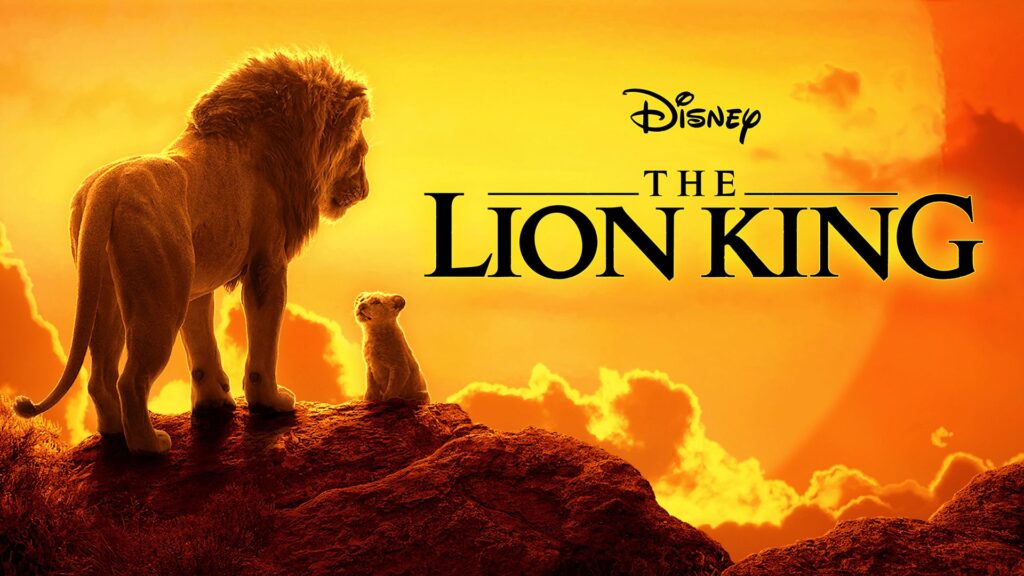
3. **Mufasa (The Lion King, Roger Allers and Rob Minkoff, 1994)**Disney’s animated classics have long held a reputation for their ability to tug at the heartstrings, often masterfully combining “memorable characters and catchy songs” with moments that feel like “a haymaker launched squarely into the feels with the unbridled power of a champion boxer.” Mufasa’s death in The Lion King is arguably the quintessential example of this strategy, a scene that has haunted generations of viewers.
James Earl Jones’ iconic voice imbued Mufasa with such immense “gravitas” that he was already elevated “to iconic status” in the minds of viewers. This powerful portrayal only made his inevitable fall, and the subsequent emotional fallout, all the more impactful. His death wasn’t just an accident; it was a devastating act of “betrayal at the hands of his scheming brother Scar,” a villain whose hunger for power knew no bounds.
The emotional weight of Mufasa’s death is compounded by the innocence of his son, Simba. His earlier joyful tune, “‘I Just Can’t Wait to be King’ ditty,” takes on a tragically ironic new meaning when “his old man is found lying limp having saved his life from a rampaging herd of wildebeest.” The sudden shift from youthful exuberance to profound loss is incredibly jarring and effective.
Watching “Simba trying to wake Mufasa up to no avail stings just thinking about it,” the text accurately notes. The young cub’s “crushing realisation” that his father is gone, and the dark forces that led to this, serve as a harsh lesson. This scene powerfully illustrates how “an insatiable hunger for power can often leave a trail of bodies in its wake,” even in a world of anthropomorphized animals, solidifying its place as one of cinema’s most tear-jerking moments.

4. **John Coffey (The Green Mile, Frank Darabont, 1999)**Frank Darabont’s classic prison drama features one of cinema’s truly “gentlest giant” characters, John Coffey, whose eventual demise is nothing short of “one of the medium’s most tear-jerking demises.” The inherent tragedy of his situation is amplified by “the sheer reluctance etched onto the face of Tom Hanks’ Paul Edgecomb,” the prison guard who witnesses and is tormented by the injustice of it all, adding further “emotional heft to a scene that’s difficult enough to stomach as it is.”
Coffey, portrayed by Michael Clarke Duncan, is a man of profound innocence and supernatural healing abilities, yet he is condemned for a crime he didn’t commit. In the moments leading up to his execution, “tears glisten in the eyes of Michael Clarke Duncan’s John Coffey as he takes pelters from the gathered crowd who believe him to be guilty of the crimes for which he was convicted.” His deep-seated “fear of the dark creating a sinking hole in the pit of the stomach when he begs not to have his face covered” is a detail that makes the heart ache.
The true injustice of Coffey’s fate is what makes it so unbearable. Here is “a good, honest, and kind man being sentenced to death for trying to help people to no avail.” The irony and cruelty of his situation, where his innocence and benevolent nature are utterly overlooked by a flawed system, are almost too much to bear. It’s a powerful critique of capital punishment and a testament to the fact that justice isn’t always served.
The emotional impact of this scene is immense and far-reaching. By the time “that fateful switch gets flipped,” it’s clear that “the assembled prison guards were a million miles away from being the only ones openly weeping.” Audiences around the world shared in their sorrow, mourning the loss of a truly good soul to a system that failed him. John Coffey’s death is a profound and deeply sad moment that stays with you long after the film ends.
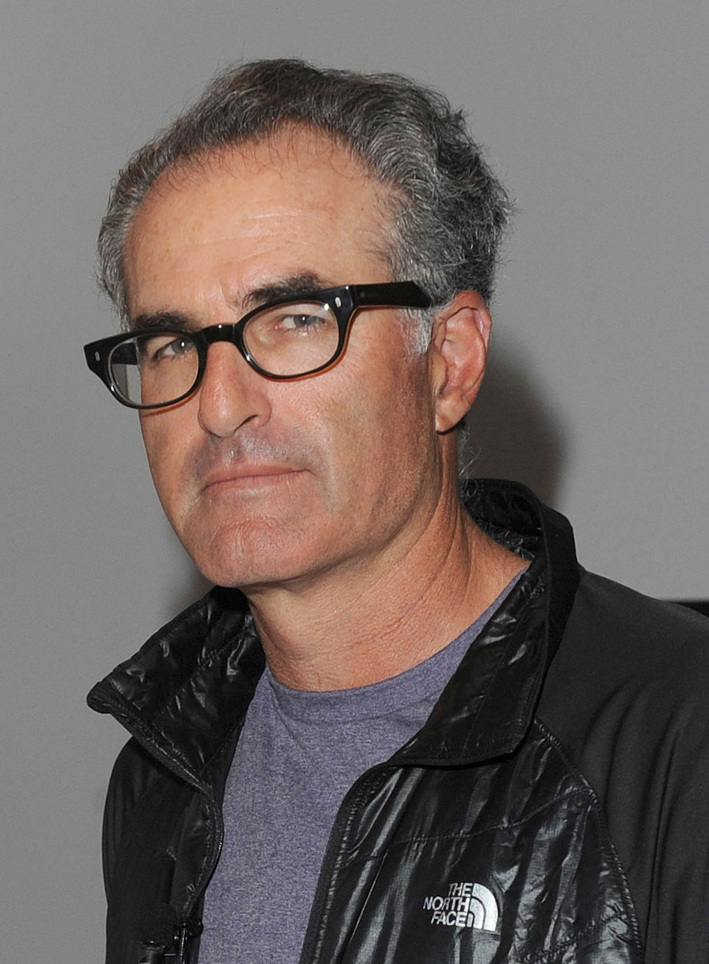
5. **Marley (Marley & Me, David Frankel, 2008)**There’s an unspoken understanding in cinema: “As a general rule of thumb, dogs don’t die in movies.” This widely held expectation is precisely what made the ending of Marley & Me so incredibly effective and utterly devastating. The film’s marketing, with its “various trailers and TV spots,” painted “the picture of a quaint comedy with a plum role for the titular canine companion.” This led anyone “unfamiliar with John Grogan’s 2005 memoir of the same name to expect a happy ending.”
Marley, the mischievous but lovable Labrador, makes “a monumental impact on the lives of Owen Wilson’s John and Jennifer Aniston’s Jenny Grogan.” The film spends a considerable amount of time showcasing his “lengthy and exuberant existence,” filled with hilarious antics and unwavering loyalty. This build-up of affection and connection only serves “to turn the final moments of the film into an emotional roller-coaster that careens off the tracks and plunges headlong into emotional annihilation.”
The decline of Marley’s health is portrayed with heart-wrenching realism. “Recovering from one near-fatal incident was a borderline miracle in itself,” creating a false sense of security that he might, against all odds, continue. However, “a second proves too much for old Marley,” and the stark reality of his deteriorating condition becomes undeniable, leading to the gut-wrenching decision that so many pet owners can relate to.
The scene where Marley “ends up being euthanised as John – and everybody else – helplessly watches on” is a masterclass in cinematic sorrow. It’s a moment that resonates deeply with anyone who has ever loved a pet, encapsulating the grief, helplessness, and enduring love involved in such a farewell. This film might have started as a comedy, but it cemented its place in our hearts as one of the saddest tales of companionship and loss.” , “_words_section1”: “1948
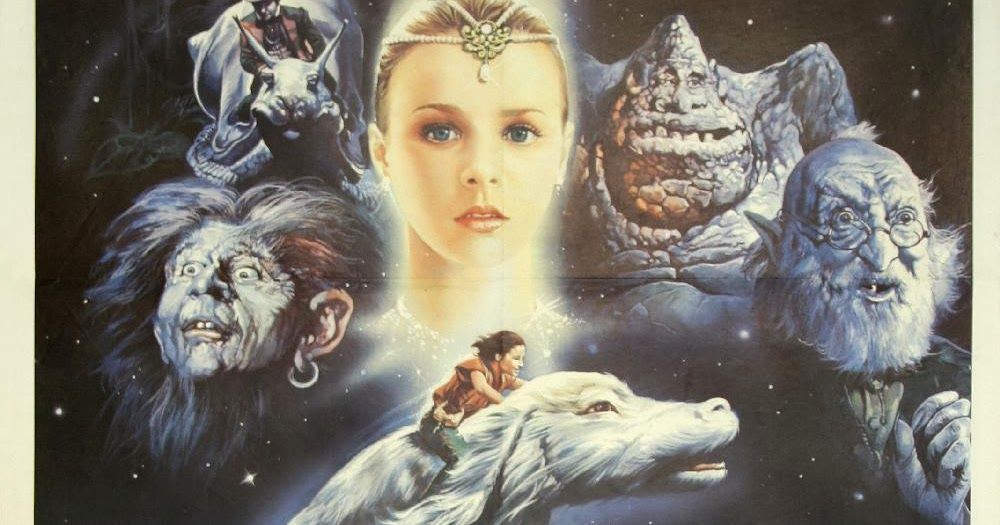
6. **Artax (The NeverEnding Story, Wolfgang Petersen, 1984)**This might surprise some of you, but *The NeverEnding Story* had a moment that absolutely crushed a generation, even if everything eventually turned out okay. For countless first-time viewers, especially those expecting a purely whimsical adventure, the devastating scene involving Artax was a profound and unexpected gut-punch. The film had already hinted at a darker side, delving into themes of despair, but nothing truly prepared us for the emotional weight that was about to unfold. This scene proved the movie was more than just a fantasy; it was a raw exploration of sorrow.
Our young hero, Atreyu, confronts the Swamp of Sadness, a treacherous place where creatures succumb to despair and sink. The cruel irony is that the swamp doesn’t drown its victims physically; it drowns them emotionally, stripping away their will to live. The agonizing struggle sees Artax, Atreyu’s pristine white horse and loyal companion, slowly but surely succumbing to the swamp’s insidious pull. It’s a truly harrowing experience to watch, a slow-motion tragedy unfolding relentlessly.
The sheer helplessness of the situation truly amplifies the heartbreak. Atreyu, full of desperate pleas and valiant efforts, realizes he’s utterly powerless to save his beloved friend. Despite his youthful determination, he cannot pull Artax from the mire, nor can he convince him to fight off the pervasive sadness. This visual of a beautiful, strong creature simply giving up, sinking into an emotional abyss, is incredibly difficult to process and leaves a deep ache in the viewer’s heart.
The scene remains incredibly difficult to revisit. Atreyu’s raw, guttural screams of “Artax!” as his equine compatriot faces inevitable doom are genuinely agonizing to witness. The image of the horse, once vibrant and full of life, literally drowning in a pit of sorrow, is a stark metaphor for profound loss. This moment cemented its place in cinematic history, ensuring *The NeverEnding Story* would be remembered not just for its fantasy, but for its unflinching portrayal of grief, with Artax embodying devastating, unpreventable heartbreak that resonated deeply.

7. **Bruno and Shmuel (The Boy in the Striped Pyjamas, Mark Herman, 2008)**Prepare yourselves, because the ending of *The Boy in the Striped Pyjamas* is arguably one of the bleakest and most emotionally punishing cinematic conclusions imaginable. While the film did receive some criticism for its approach to a sensitive historical event, there’s no denying that the friendship forged between Asa Butterfield’s Bruno and Jack Samuel’s Shmuel culminates in an almost inconceivably tragic finale. It’s a scene designed to rip your heart out.
The narrative draws you in through the innocent eyes of these two young boys. Their bond, developing across the barbed wire fence of a concentration camp, creates immediate and intense emotional investment. Bruno, son of a Nazi commandant, and Shmuel, a Jewish prisoner, form an unlikely and poignant connection. This highlights the pure, unburdened nature of childhood friendship, even in the darkest of times, making the impending tragedy all the more devastating.
In a moment of naive loyalty and unwavering friendship, Bruno decides to secretly assist Shmuel in tracking down his missing father. Shmuel’s father isn’t “missing” in the way Bruno understands; he’s fallen victim to the horrors of the camp. To help his friend, Bruno dons striped pajamas and digs under the fence to join Shmuel. This innocent quest, fueled by a child’s understanding of friendship, leads both boys directly into the belly of the beast.
The true devastation comes from witnessing the culmination of their innocent bond under such wicked and depraved means. As they search, they are suddenly corralled by guards, along with other prisoners, and marched directly into a gas chamber. Their shared terror and confusion in those final moments, hand-in-hand, clinging to each other in the darkness, serve as an unforgettable and gut-wrenching reminder of the atrocities committed. It’s a moment that leaves you heartbroken and with a lasting imprint of the profound human cost of evil, filtered through childhood vulnerability.
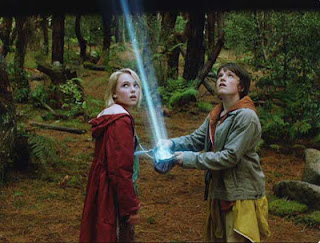
8. **Leslie Burke (Bridge to Terabithia, Gábor Csupó, 2007)**Let’s talk about marketing campaigns that completely missed the mark. The trailers for *Bridge to Terabithia* were so misleading that the filmmakers themselves publicly distanced from them. Director Gábor Csupó famously warned, “If they are anticipating a Harry Potter movie, then we are in trouble.” Audiences were primed for a sweeping fantasy, but what they received was a powerful, deeply emotional drama culminating in a gut-wrenching shock.
Unless viewers had already read Katherine Paterson’s novel, they were utterly unprepared for the film’s true emotional core. The fantastical kingdom of Terabithia isn’t a real place they’re magically transported to. It’s a vibrant, imaginative world created by Josh Hutcherson’s Jesse Aarons and Anna Sophia Robb’s Leslie Burke. They build this sanctuary in the woods as a coping mechanism against the trials of their formative years, a testament to childhood imagination and friendship.
Midway through the movie, Leslie’s sudden and tragic death shatters their world. She drowns after the rope swing they use to cross a swollen creek breaks. The cruel irony is that Jesse had initially refused to go to Terabithia with her that day, choosing a trip with his teacher instead. This detail magnifies the tragedy, adding layers of what-ifs and regrets for both the character and the audience, making the loss even harder to bear.
While the tragic event itself happens off-screen, the aftermath is ruinous for the soul, particularly through Jesse’s eyes. His initial denial, followed by crushing acceptance as he sprints to Leslie’s house to find emergency vehicles, is incredibly potent. His profound sorrow is compounded by intense guilt, as he wrongly holds himself responsible for her death. This unexpected and truly devastating loss leaves audiences grappling with the harsh realities of life, loss, and how innocence can be shattered in an instant.
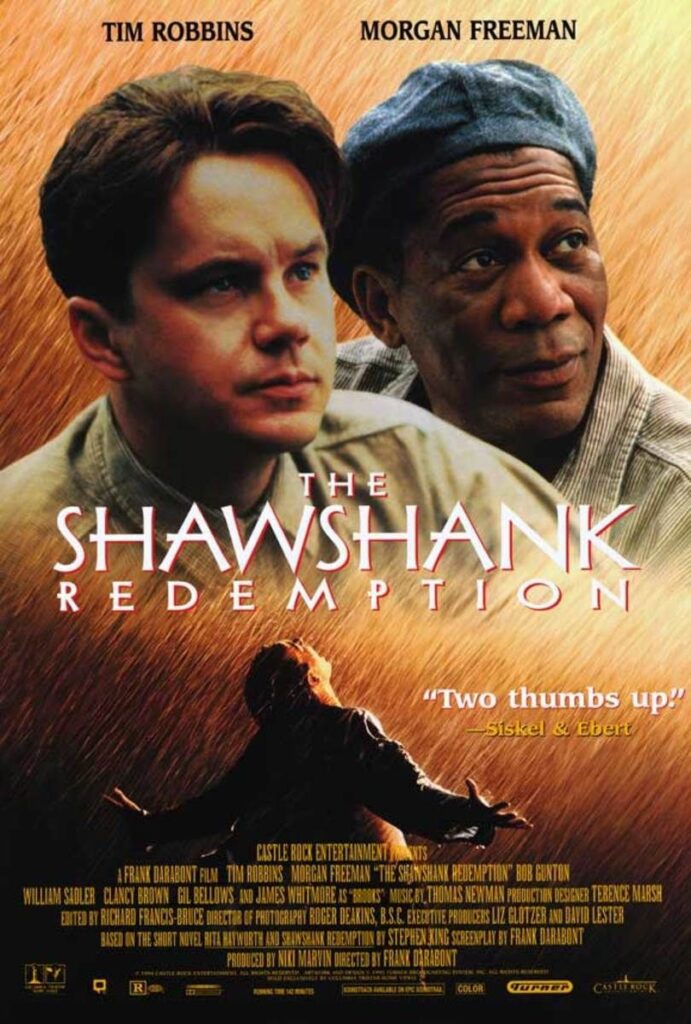
9. **Brooks Hatlen (The Shawshank Redemption, Frank Darabont, 1994)**While *The Shawshank Redemption* is celebrated for Andy Dufresne’s enduring hope, it also delivers one of cinema’s most profoundly sad moments through Brooks Hatlen. His story stands in stark contrast to Andy’s, not for freedom, but for the exact opposite reason. Brooks’ death hits harder because it’s a quiet, desperate act born of severe institutionalization. Freedom itself becomes a terrifying death sentence.
Brooks spent an astonishing 50-year sentence at Shawshank. During his decades of incarceration, he became institutionalized beyond repair, losing touch with the outside world. His identity and purpose were intertwined with the prison routines. The thought of being released filled him with such dread that he considered murdering an inmate just to prolong his sentence. That’s how terrifying the outside world had become.
Upon his forced release, Brooks is hopelessly lost. The film vividly portrays his struggle: he grapples with bustling streets, busy roads, and the simple task of bagging groceries. These mundane tasks become insurmountable challenges for a man isolated from such experiences for half a century. This sequence encapsulates his tragic status as a man truly out of time, unable to comprehend or navigate modernity.
In his mind, with no hope of adapting to this alien world, Brooks makes the heartbreaking decision to end his life. He carves “Brooks Was Here” into a beam, a final act to acknowledge his existence, and sends a poignant letter to his friends inside Shawshank before hanging himself. For him, in his despair, it was “the wisest option.” For us, his quiet suicide triggers floods of tears, a devastating testament to how life behind bars can become the only life one knows.

10. **Ellie Fredricksen (Up, Pete Docter, 2009)**And finally, we arrive at a moment that exemplifies Disney and Pixar’s unparalleled genius for wreaking havoc on our emotional fragility. *Up* might seem like a whimsical tale about an old man and his balloon house. However, its true, undeniable emotional weight comes from a few, masterfully crafted, wordless minutes at the very beginning. This opening sequence delivers one of the most emotionally damaging, yet beautiful, love stories ever told in cinema history.
The iconic “Married Life” montage is a narrative tour de force. It chronicles Carl and Ellie’s entire life together, from childhood dreams and first meeting, through their marriage, shared joys, mundane moments, and heartbreaking struggles like their inability to have children. It’s an incredibly efficient and powerful piece of storytelling that builds a deep, visceral connection to their relationship. We witness their hopes, resilience, and unwavering love.
When Ellie eventually passes away, it’s not just a plot point; it’s an emotional earthquake that shakes the audience to their very core. The scene is handled with such tender realism and gut-wrenching honesty that it bypasses intellectual understanding and goes straight for the heart. Anyone who claims they weren’t distraught by her passing, by watching Carl sit alone in his empty house, is either dead on the inside or frankly, a bold-faced liar. It captures the universal pain of losing a life partner.
Her death isn’t just sad; it’s the fundamental, deeply personal motivation behind Carl’s entire adventure. His journey to Paradise Falls isn’t just about fulfilling a childhood promise; it’s an act of enduring love, a desperate attempt to honor Ellie’s memory and their shared dream. This powerful foundation solidifies *Up*’s reputation not merely as a fun film, but as a deeply affecting testament to love, profound loss, and the enduring power of dreams, leaving an indelible mark on our souls.
Wow, what an emotional rollercoaster we’ve just ridden! Diving into these ten cinematic moments truly showcases the incredible, almost supernatural power movies hold over our hearts and minds. From the unexpected gut-punches delivered in films like *My Girl* and *The NeverEnding Story*, which blindsided us with sorrow, to the profound, lingering anguish evoked by *The Green Mile*, *Marley & Me*, and *Up*, these are not just scenes that happen; they become deeply ingrained in our memories. They evolve into a cherished, albeit painful, part of our collective cinematic DNA, proving unequivocally that sometimes, the most memorable stories are the ones that leave us reaching for the tissues. But hey, isn’t that precisely why we adore movies so much? For their unparalleled ability to make us feel *everything*, connecting us with universal experiences of love, loss, and the bittersweet beauty of the human (and sometimes animal) condition? These moments remind us that cinema is more than just entertainment; it’s a powerful mirror to our deepest emotions, leaving an indelible mark long after the credits roll.




